In the past decade, extraordinary space missions have discovered new features of the Sun, the planets and their moons.
The Cassini spacecraft, which is now orbiting Saturn, looked back toward the eclipsed Sun and saw a view unlike any other. The rings of Saturn light up so much that new rings were discovered.
Saturnian moons Titan and Tethys in clear view as the shadow of Saturn darkens the far arm of the rings.
In this image from the SOHO satellite, a “prominence” erupts from the Sun.
This is a composite image of the Sun from three wavelengths. It reveals the solar features unique to each wavelength.
This image shows a coronal mass ejection around the Sun as it blasts billions of particles millions of miles per hour into space. The image of the Sun was enlarged and superimposed.
The Sun erupts in flares (as seen through a SOHO ultraviolet telescope.)
This image shows a variety of loops and active regions. The lighter areas on the surface of the Sun are the active regions.
This image of the Sun was captured by the Hinode satellite. It shows the moon traversing the face of the sun during a solar eclipse on July 22, 2009.
A composite image of multiple solar flares on the Sun.
At Victoria Crater on Mars, the rover Opportunity examined samples of sedimentary rock
More than three billion years ago, Mercury was slammed by an asteroid or comet that created the Caloris Basin (the vast golden area). Volcanoes erupted at the crater’s edges.
The Galileo spacecraft captured this image of Jupiter’s moon Europa. Visible are ice, cracks that run to the horizon and dark patches that most likely contain ice and dirt.
In this image of Jupiter’s moon Io, two sulfurous eruptions are visible
West of Jupiter’s Great Red Spot is this turbulent region captured by the Galileo spacecraft.
This image is a closeup of the ice crust in the Conamara region of Jupiter’s moon Europa
>
Source:
Fantastic Photos of our Solar System
Laura Helmuth
Smithsonian magazine, October 2009
http://www.smithsonianmag.com/science-nature/Out-of-This-World.html##ixzz0SYEMx0VE
http://www.smithsonianmag.com/science-nature/Out-of-This-World.html#

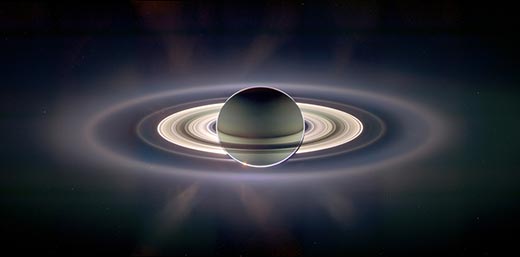
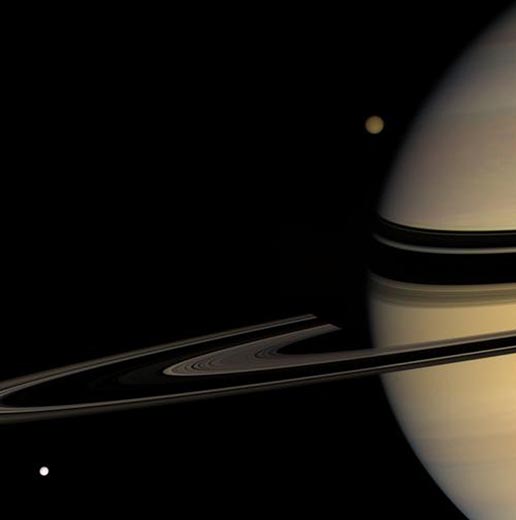
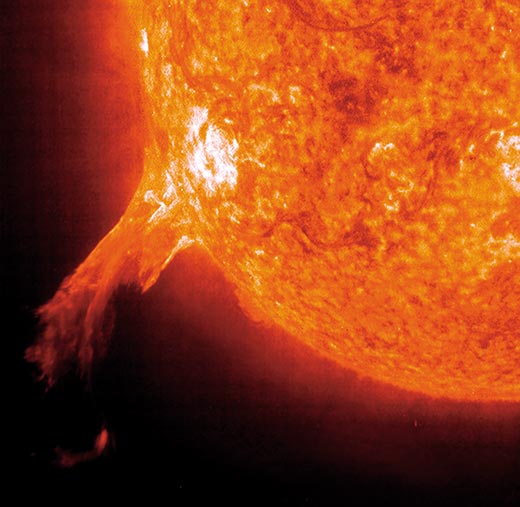
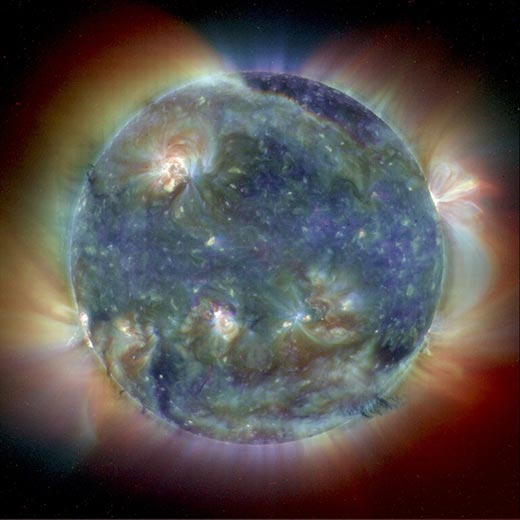
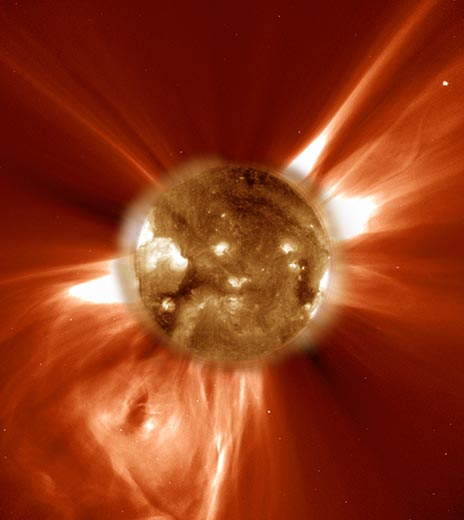
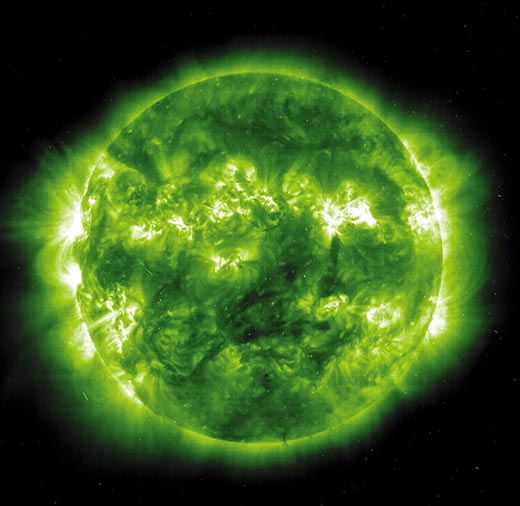
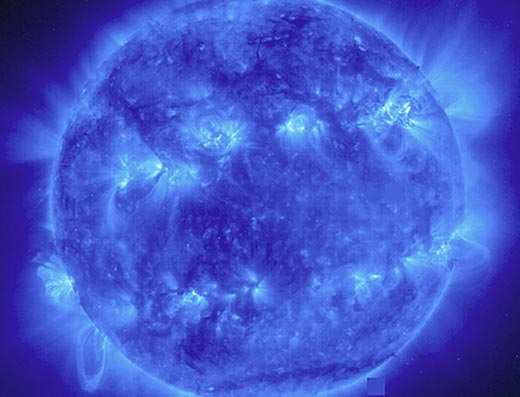
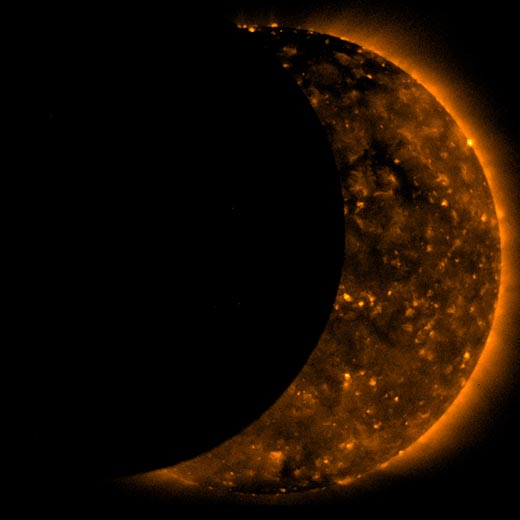
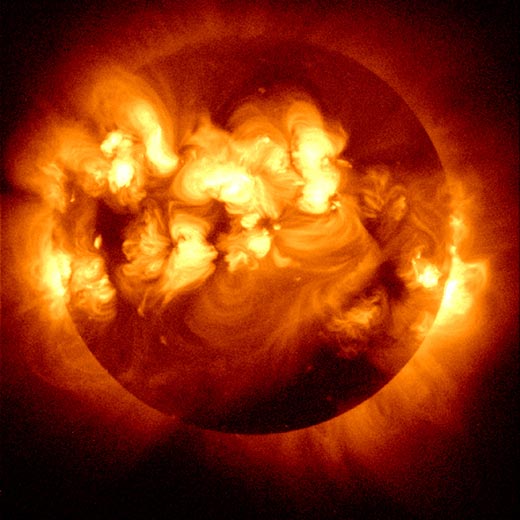
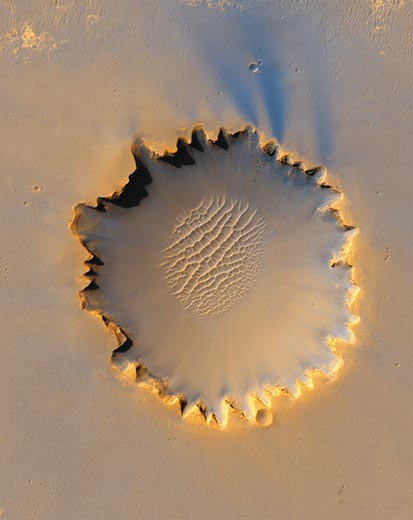
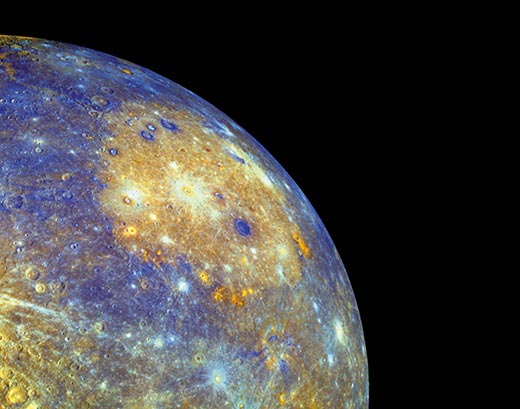
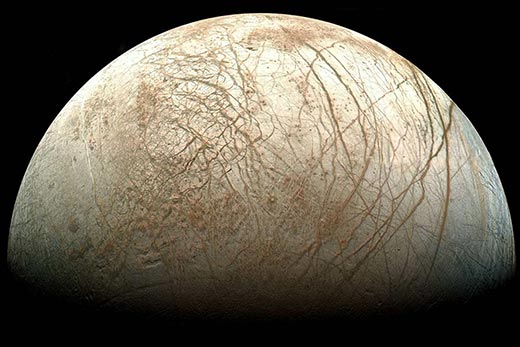
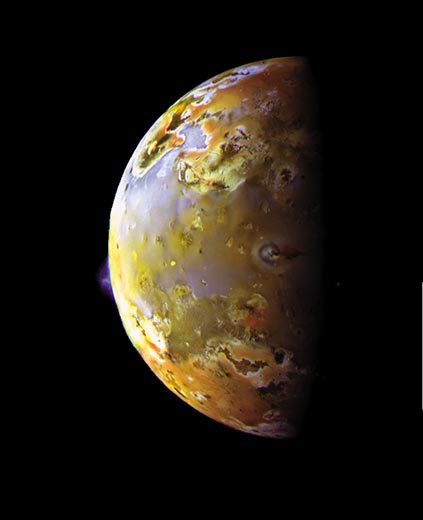
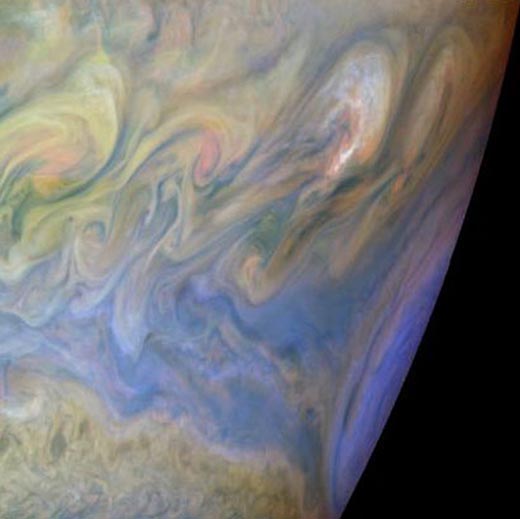
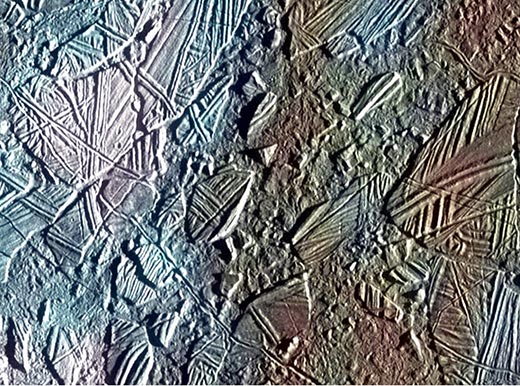

What's been said:
Discussions found on the web: